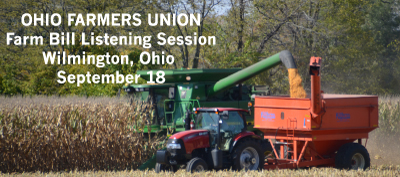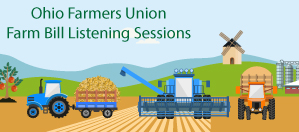 The U.S. Environmental Protection Agency (EPA) yesterday announced this week, lower proposed obligations for renewable fuel usage under the Renewable Fuel Standard (RFS), the nation’s preeminent policy for encouraging the production and development of American grown and produced transportation fuels. The agency’s proposal would reduce obligations in 2018 for total renewable fuel volumes, biomass-based diesel, and advanced biofuel if finalized.
The U.S. Environmental Protection Agency (EPA) yesterday announced this week, lower proposed obligations for renewable fuel usage under the Renewable Fuel Standard (RFS), the nation’s preeminent policy for encouraging the production and development of American grown and produced transportation fuels. The agency’s proposal would reduce obligations in 2018 for total renewable fuel volumes, biomass-based diesel, and advanced biofuel if finalized.
In response to the announcement, National Farmers Union (NFU) President Roger Johnson issued the following statement:
“This proposal undermines the intent of the RFS law, which is to expand markets for American produced renewable fuels. We need to be increasing our use of higher blends of renewable fuels like E30 and advanced biofuels, not reducing the renewable energy footprint on our nation’s transportation sector.
“The success of the homegrown, renewable energy sector is vital to family farmers and rural America, who benefit greatly from the expanded markets, investment, and high-paying jobs brought to their communities for renewable energy development. If this proposal is ultimately implemented, it would be a direct repudiation of President Trump’s promises to support the RFS and continued renewable energy development. This is especially troubling amidst the deeply depressed farm economy we are facing today.
“NFU looks forward to offering further comment on the proposal to ensure the RFS continues to be the economic and environmental success story it has been for family farmers, consumers and rural communities.”
 Your Ohio Farmers Union membership grants you membership to National Farmers Union, and NFU continues to add great member benefits!
Your Ohio Farmers Union membership grants you membership to National Farmers Union, and NFU continues to add great member benefits! OFU wants bi-partisan ACA fix that stabilizes marketplaces, protects rural hospitals
OFU wants bi-partisan ACA fix that stabilizes marketplaces, protects rural hospitals Ohio Farmers Union Event to Hear from Farmers, Provide Farm Bill Briefing
Ohio Farmers Union Event to Hear from Farmers, Provide Farm Bill Briefing As Congressional committees begin prepping for the 2018 Farm Bill, the Ohio Farmers Union and U.S. Sen. Sherrod Brown will hold a listening session and briefing in Fremont on August 29.
As Congressional committees begin prepping for the 2018 Farm Bill, the Ohio Farmers Union and U.S. Sen. Sherrod Brown will hold a listening session and briefing in Fremont on August 29. Have you been looking for a fun, engaging way to bring Farmers Union to your community? Why not put on a local OFU coloring contest? Entries will be photographed locally by you and shared. We’ll put together a cool digital display of kids and their creations at the 2018 Ohio Farmers Union Annual Convention in January.
Have you been looking for a fun, engaging way to bring Farmers Union to your community? Why not put on a local OFU coloring contest? Entries will be photographed locally by you and shared. We’ll put together a cool digital display of kids and their creations at the 2018 Ohio Farmers Union Annual Convention in January.

